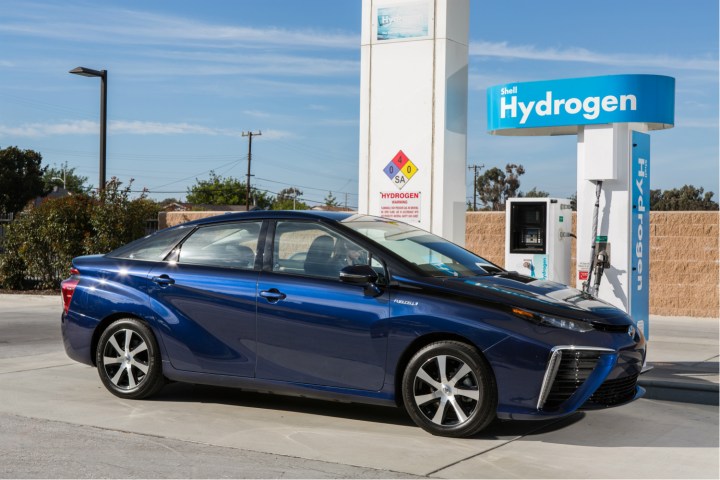
With an EPA estimated driving range of 312 miles and a refueling time of five minutes, the Mirai is coming closer to what we expect in a traditional car.

Services haven’t changed for the new model year — buyers still get three years’ worth of complimentary fuel, three years of complimentary Safety Connect and Entune, which includes a hydrogen station finder app, and three years of 24/7 customer call support. There is no cost for scheduled maintenance for three years or 35,000 miles (whichever comes first), free roadside assistance, and an 8-year/100,000 mile warranty on “key fuel cell vehicle components,” which include the fuel cell stack and power control unit, hydrogen tanks, hybrid battery pack, and numerous ECUs.
The 2017 Mirai adds a color option, Atmospheric Blue, to the existing Celestial Black, Elemental Silver and Nautical Blue Mirai color choices.
The Mirai continues to be offered solely in California, through eight authorized dealers. California customers can request a Mirai by visiting Toyota’s Mirai site. Production is limited, and only “select, eligible customers” will be able to get one.
Editors' Recommendations
- Toyota joins ‘the Tesla plug’ club
- All the hydrogen vehicles available for purchase
- Hyundai cracks off two new land speed records in fuel cell, hybrid cars
- Toyota’s E-volution continues with 2021 Mirai and 2021 RAV4 Plugin
- Next-gen Toyota Mirai confirmed despite continuing issues with hydrogen tech


